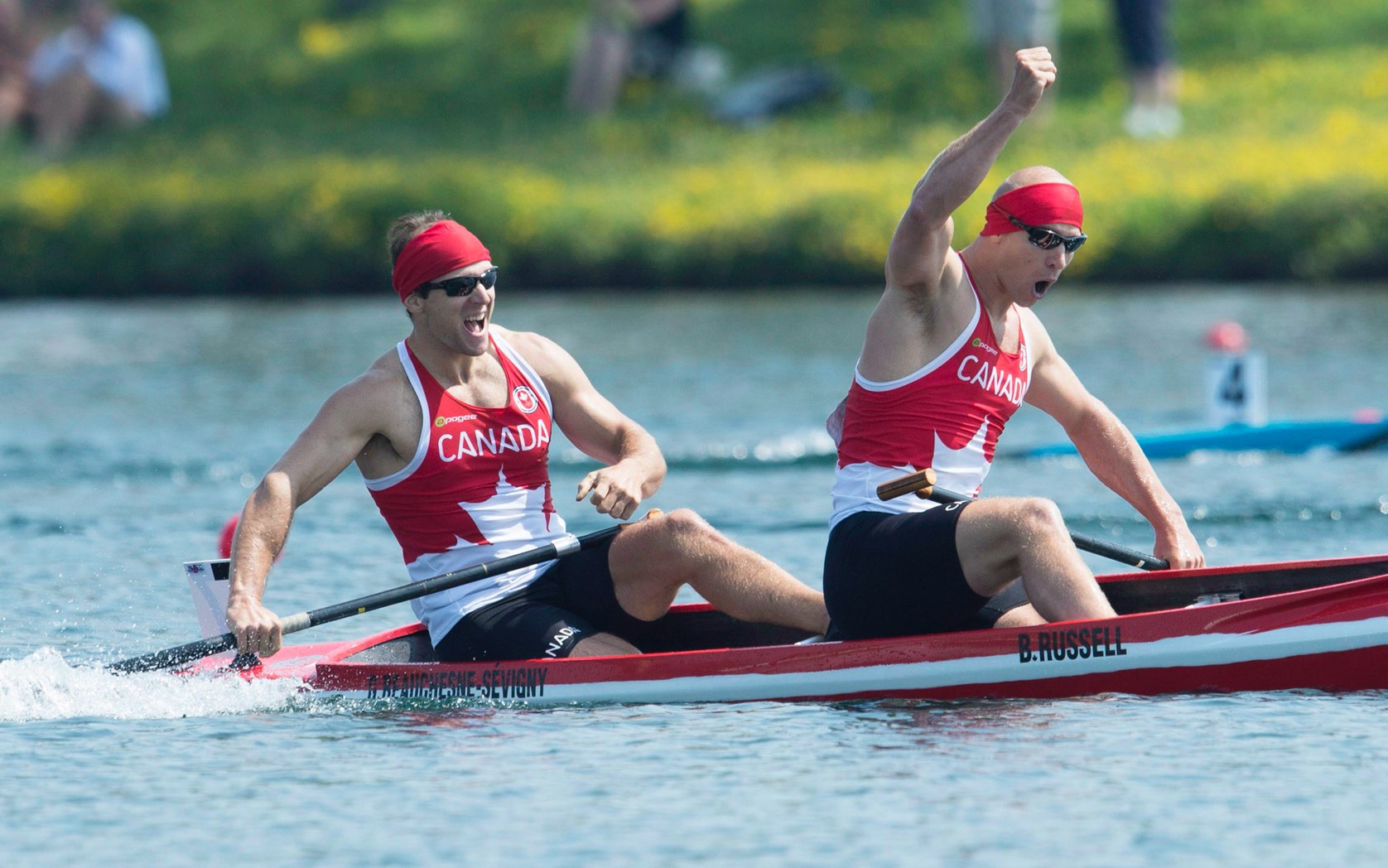Supporting Canadian Athletes’ Next Moves
A partnership with the Canadian Olympic Committee is helping athletes make the transition from sports to business.
It was the spring of 2016, just before the Rio Olympics, and a 31-year-old Gabriel Beauchesne-Sévigny was making a last run at a Canadian Olympic team. Whether the sprint canoeist made the team or not, he had already decided he would retire at the end of summer. That would be after a lengthy Team Canada career that included competing at the Beijing Olympics in 2008 and winning gold at the Pan Am Games in Toronto in 2015.
But there are no guarantees in sport, of course, and unfortunately Beauchesne-Sévigny just missed making the Rio Olympics team. Now the question was: What next?
It’s something many athletes ask themselves when it’s time to move on from competition, and it’s not always easy to find the answer. Olympians devote so much of their lives to a singular focus on sport that when the cheering stops, it can be difficult to figure out what comes after. But that’s where the Canadian Olympic Committee’s (COC) Game Plan program comes in.
Game Plan helps Canada’s high-performance athletes plan for life after retirement, and in 2016 Smith School of Business became the exclusive official partner of business education to athletes under the program. That meant that over eight years, up to 1,200 Game Plan athletes would be eligible for scholarships for a broad range of Smith programs. This April, Smith and the COC announced that 11 new Team Canada athletes had enrolled at the business school, including Olympic gold-medal-winning ice dancer Tessa Virtue.
Meet some of the COC athletes who’ve taken their business skills to the next level at Smith.
For Beauchesne-Sévigny, Game Plan helped to answer the “what’s next?” question. The Trois-Rivières, Que. native had a civil engineering degree, but he wasn’t sure if he wanted to join an engineering firm. So Game Plan got him into a week-long job shadowing program with PCL Construction in Ottawa, and after the debrief and more research, Beauchesne-Sévigny realized that an MBA at Smith seemed like the right choice.
“Through the interview process, I realized that Smith had the coaching and the surrounding support system to really grab me and kind of polish off the diamond in the rough,” he says. “The security with the full scholarship was also huge, but so was the realization that with the MBA, I could really move my career to the next level.”
Beauchesne-Sévigny was among the first group of Game Plan athletes at Smith, in 2017, and right away he used some of the lessons he learned as an athlete to deal with the stress of life as an MBA student. One of the biggest was patience. “The first six months of the MBA were difficult, but I had to bank on that patience I had learned as an athlete,” he says. “You’re not going to go to the Olympics in the first four years; you’re going to have to do a 12-year cycle if you really want to get there.”
Former Olympic swimmer Martha McCabe saw similar parallels. After retiring in 2016, and with little business background, McCabe started her own mentorship company, Head to Head, which connects Olympians to youth across Canada. But soon she wanted the hard skills and boost of confidence that comes from a formal business education. So she enrolled in Smith’s Master of Management Innovation & Entrepreneurship (MMIE) program in 2018.

Gabriel Beauchesne-Sévigny, left, and Ben Russell, both graduates of the full-time MBA program at Smith, celebrate their gold-medal win at the Pan Am Games in Toronto in 2015.
It was a good choice, she says. “The MMIE program is especially fantastic for athletes transitioning out of sport because from the beginning you really do a deep dive into why you’re in the program. What do you really want to do with your life? Why do you want to do that with your life? And as an athlete coming out of sport, that’s exactly what you need to do.”
Shari Hughson is the director of the MMIE and says that the program has been particularly popular with retired athletes. To date, 13 former Canadian Olympic Committee athletes have enrolled. Four of them have gone on to grow entrepreneurial ventures, four are key employees in startups, with shares, and five are in leadership roles at different organizations.
The primary reason for that popularity, says Hughson, is likely the similar personality traits between athletes and entrepreneurs. “There is a competitive streak in entrepreneurs and obviously athletes, as well as a huge amount of resilience, self-motivation, problem-solving, striving for the next goal, and focus on achievement.”
As for Gabriel Beauchesne-Sévigny, he couldn’t be happier with his decision to do his MBA at Smith. After graduating, he joined Johnson & Johnson and is now working in supply chain management at the company, a role that draws on his engineering background, his team-oriented skills, and, of course, his business education. “I’m just so grateful and appreciative of the opportunity at Smith,” he says. “I think it’s such a good scholarship to apply for as an athlete if you want to maximize the impact with your first role in the marketplace. It’s just a great choice.”
